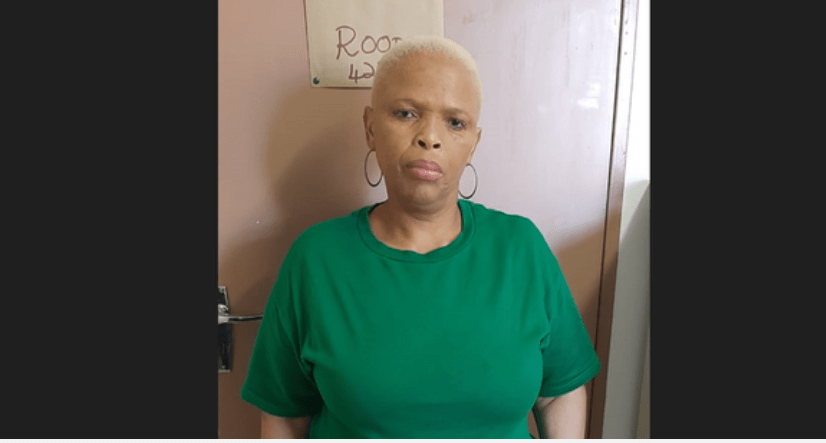In a recent judicial decree that sent shockwaves through the legal landscape, a federal judge in Texas has delivered a groundbreaking ruling that promises to redefine the scope of opportunities for entrepreneurs across the United States.
Judge Mark Pittman, a notable figure appointed during the Trump administration, issued a resolute verdict, challenging the status quo of affirmative action initiatives. At the center of this legal showdown was the Minority Business Development Agency (MBDA), an institution established during the Nixon era to champion the cause of minority entrepreneurs.
However, Pittman’s ruling introduced a seismic shift by mandating that the MBDA extend its support to all disadvantaged entrepreneurs, irrespective of their racial or ethnic backgrounds. This decision, stemming from a lawsuit filed by two determined white businessmen, underscored a pivotal moment in the nation’s legal history.
The plaintiffs, whose aspirations were thwarted by the agency’s discriminatory policies, found a formidable ally in Pittman’s courtroom. The judge’s meticulous analysis deemed the agency’s practices as unconstitutional, invoking the principle of equal protection enshrined in the nation’s foundational documents.
In a decisive move, Pittman delivered a permanent injunction, effectively dismantling the MBDA’s race-based criteria for eligibility. This landmark decision not only reverberated across legal circles but also echoed the sentiments of countless individuals who had long yearned for a fair and equitable business landscape.
Among the courageous individuals who stood against the status quo were Jeffrey Nuziard, a visionary entrepreneur in the field of sexual wellness clinics; Christian Bruckner, an immigrant with indomitable spirit pursuing federal contracting opportunities; and Matthew Piper, an architect whose quest for justice symbolized a larger struggle for equality.
As the dust settles on this legal battlefield, the implications of Pittman’s ruling extend far beyond the confines of the courtroom. It challenges entrenched notions of privilege and heralds a new era of inclusivity in the realm of entrepreneurship. With the MBDA compelled to embrace a more equitable approach, the promise of opportunity beckons to a diverse array of aspiring business owners across the nation.
Amidst the legal tumult, voices of both praise and protest rose, echoing across the nation. Advocates of equality lauded Judge Pittman’s decision as a triumph for justice, heralding it as a long-awaited step towards leveling the playing field for all aspiring entrepreneurs. Conversely, critics decried the ruling as a dangerous precedent, fearing it would undermine decades of efforts to address historical injustices and promote diversity in business.
In the wake of the ruling, discussions surrounding affirmative action and its role in modern society intensified. Some argued that while affirmative action initiatives were originally intended to redress systemic inequalities, they had become mired in controversy and had strayed from their intended purpose. Others countered that dismantling such programs would only perpetuate existing disparities and hinder progress towards a more inclusive society.
The implications of Judge Pittman’s decision extended beyond the MBDA, casting a spotlight on broader questions of race, equity, and opportunity in America. It sparked debates in classrooms, boardrooms, and legislative chambers alike, prompting soul-searching conversations about the nation’s commitment to equality and justice.
In the midst of these debates, the plaintiffs in the case—Nuziard, Bruckner, and Piper—emerged as unlikely symbols of a shifting paradigm. Their decision to challenge the status quo, fueled by a steadfast belief in the principles of fairness and meritocracy, resonated with individuals from all walks of life. They became emblematic of a growing movement demanding greater transparency and accountability in government programs aimed at fostering economic development.
Meanwhile, the MBDA found itself at a crossroads, grappling with the implications of Judge Pittman’s ruling. As an institution tasked with promoting minority entrepreneurship, it faced the daunting challenge of recalibrating its approach to better serve the needs of all disadvantaged entrepreneurs, regardless of race or ethnicity. The agency embarked on a comprehensive review of its policies and procedures, seeking to strike a delicate balance between promoting diversity and ensuring fairness for all.
President Joe Biden, Commerce Secretary Gina Raimondo, and other administration officials closely monitored developments, recognizing the significance of the case and its potential ramifications. They pledged to uphold the principles of equality and justice, vowing to work towards a more equitable society where opportunities were accessible to all.
As the legal saga unfolded, it became clear that Judge Pittman’s ruling had ignited a national conversation about the meaning of equality in the 21st century. It served as a stark reminder that the pursuit of justice was an ongoing journey, fraught with challenges and complexities, but also ripe with possibilities for positive change. And in the end, it was a testament to the enduring power of the law to shape the course of history and pave the way for a more just and inclusive future.









